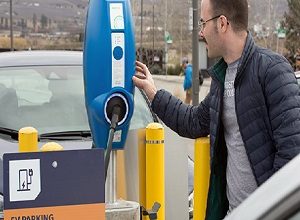Svealandstrafiken future-proofs its bus fleet – VÄSTERÅS is the next city to transition to electric Volvo Buses
Svealandstrafiken has ordered ten high-capacity electric buses from Volvo

Over the past year cities such as Gothenburg, Malmö and Jönköping in Sweden, Bodö, Drammen and Ålesund in Norway and Århus in Denmark have decided to switch to electric buses in partnership with Volvo Buses. Now Svealandstrafiken in Västerås has also decided to intensify its transition to electric vehicles.
“The agreement with Volvo Buses can be seen as the start of a shift in fuel sources for our city buses, from biogas to electricity,” says Peter Liss, President of Svealandstrafiken.
The move to electrically propelled, quiet and exhaust emission-free buses creates new opportunities for more flexible routes and a better urban environment. Without emissions and disruptive noise bus stops can be located where previously impossible, for instance indoors, at hospitals and in shopping malls.
“The fact that Svealandstrafiken and many other Swedish and European bus operators choose Volvo’s solution for electrified urban traffic demonstrates immense confidence in our products and our experience of electrification. Together we are continuing our drive to improve the quality of life in our cities and reduce the impact on the climate and environment,” explains Håkan Agnevall, President of Volvo Buses.
The low noise level and absence of engine vibration makes bus travel more appealing both to passengers and city residents – and it also has a positive effect on drivers.
“The introduction of electric buses has brought about a clear improvement in working environment for our drivers,” says Geert Schaap, Director of Sustainability and Innovation at Svealandstrafiken.
All the buses in the new order are of the highly successful Volvo 7900 Electric Articulated model, which can carry up to 120 passengers. The first bus will take to the streets in about a year’s time, with the remaining nine being delivered by July 2022 at the latest. The buses, which will operate in central Västerås, will have a range of about 200 km between charges. Charging will take place in the depots. Svealandstrafiken is receiving a grant from the EU’s Connecting Europe Facility (CEF) to cover part of the transition cost.





